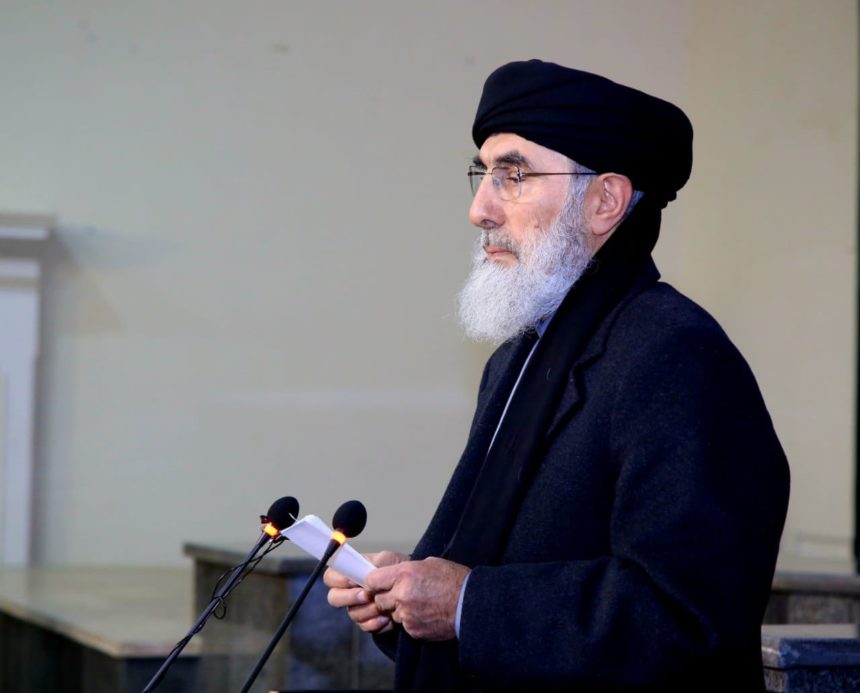Among the jihadist leaders in Afghanistan, Gulbuddin Hekmatyar stands out as an exceptional fascist, whose political career has been marred by the lust for power. Thrice embracing his tribal communists in pursuit of power, he formed political alliances with them. Utilizing Islam as a tool, he orchestrated rocket attacks on Kabul during the reign of the Mujahideen government under the leadership of professor Burhanuddin Rabbani by betraying him. The political landscape in Afghanistan, spanning the right, center, and left, traces back to the sixties, influenced by the transformations and polarizations on national, regional, and global scales. With the former Soviet invasion of Afghanistan, the Islamic Party, due to its ties with the government of Zulfiqar Ali Bhutto, gained recognition by the Pakistani government, enjoying special privileges. Later, under his leadership, this party evolved into the primary player in Afghanistan’s internal wars.
Gulbuddin Hekmatyar, attempting five coups to seize power by aligning with the tribal communists, only left a shameful stain of alliance with communism in his political record and failed to succeed. After repeated failures in joint coups with communists like Amin-Gulbuddin, Gulbuddin-Tani, and Gulbuddin-Najib, he, as the leader of the Islamic Party (Hikmatyar), opened his arms, interpreting Islam uniquely, for understanding and reaching power. While other jihadist parties fought against communist regimes for the liberation of Afghanistan, Hekmatyar collaborated with them. Following his defeats in all joint coups with communist regimes, at the behest of General Akhtar Abdul Rahman, the head of the ISI (Inter-Services Intelligence) of Pakistan, Hekmatyar set Kabul ablaze and pledged allegiance to this organization.
In contemporary Afghanistan history, Gulbuddin Hekmatyar, rather than being a founder of political Islam, emerged as one of its followers. Following the defeat of the Russian-backed regime in the country, Gulbuddin, at the behest of the Pakistani military intelligence organization, once again broke his commitment to other jihadist parties in an attempt to monopolize power. However, preventing his monopolistic efforts led to conflict and sparked internal wars, as well as rocket attacks on Kabul, resulting in the loss of fifty thousand innocent lives and the displacement of thousands more. These atrocities earned him the moniker “Butcher of Kabul” from the Afghanistani people, who consider him a war criminal and murderer of thousands of innocent people in the country. In Afghanistan’s political upheavals, Hekmatyar, driven by power-hunger under the guise of Islam, sometimes beat the war drum for power and other times for tribal dominance. Thus, his war drum echoed against all governments, from Dawood to the People’s Democratic Party, the Mujahideen government under Professor Burhanuddin Rabbani, to several years of the Islamic Republic. According to some contemporary Afghanistan historians, Gulbuddin’s inability to leverage the power and fame bestowed upon him by Pakistan, due to his greed, exclusivism, and nationalistic absolutism, resulted in his isolation from Afghanistan political and social life, transforming him from a political figure into a societal pariah.
Gulbuddin’s tribalistic approaches and nationalist policies have been integral to his dark legacy, evident in his political behaviors. After the victory of the National Resistance Front of Afghanistan under the leadership of Professor Rabbani and the fall of the Taliban regime from the country, he once again sounded the war drum against the republican system, using the warlike methods of the religious schools and Kuwaita, such as Al-Qaeda and Taliban suicide bombers. In a message commemorating Eid al-Fitr in the year 2013, with a sharp tone and a change in tribal attitude, he threatened the majority against the minority, the Shias and the Hazaras of Afghanistan, with forced migration and genocide, expressing strong dissatisfaction with the establishment of “Panjshir” and “Daykundi” as province. Having fled to Iran before the Taliban’s rise to power, Gulbuddin, due to collaboration with terrorists and opposition to the republican system, was expelled from that country. In 2014, he labeled Iran as another Israel for the Islamic Ummah, issuing a fatwa from an Islamic address.
After the killing of Mullah Akhtar Mansoor in 2014, Gulbuddin sought to form an alliance with the Taliban but was rejected. Subsequently, he officially declared support for the ISIS group in Afghanistan, stating that he would support ISIS in case of a war between the Taliban and ISIS. He urged his followers to collaborate with individuals who had defected from the Taliban to join ISIS.






